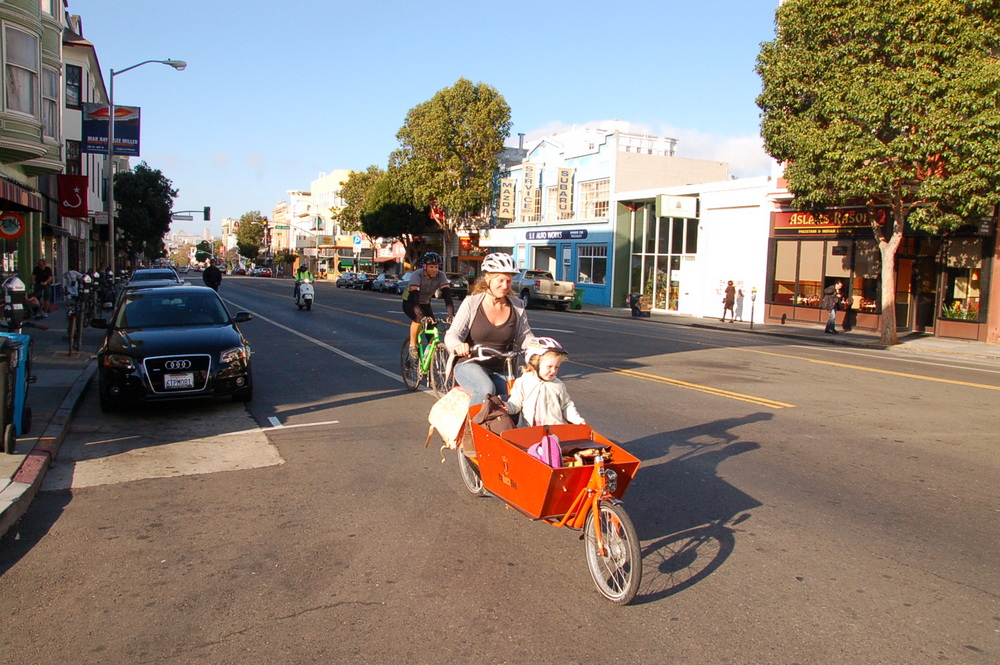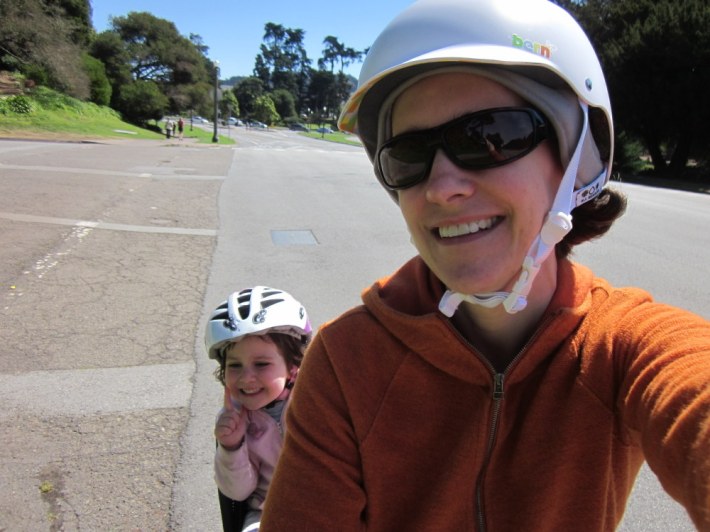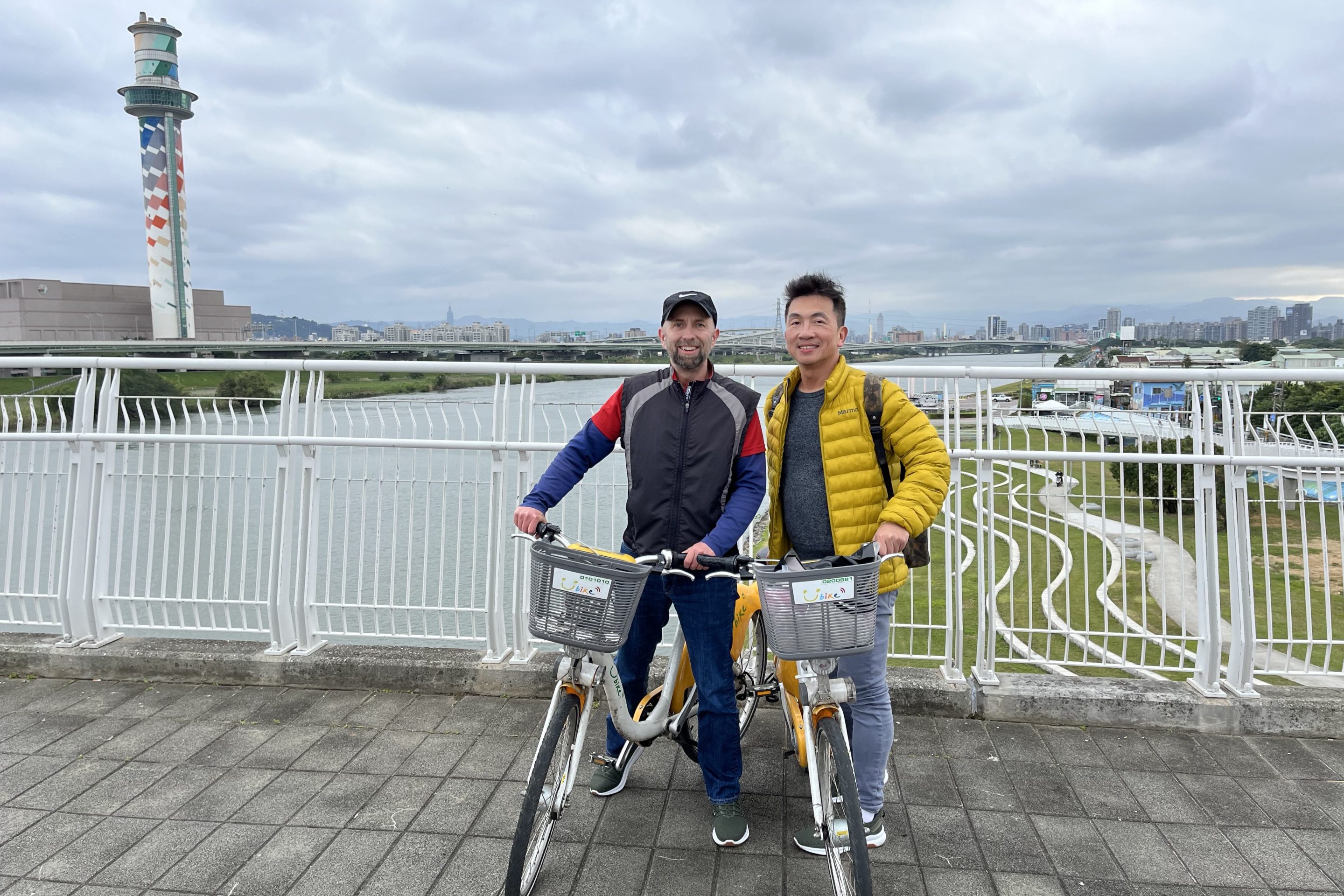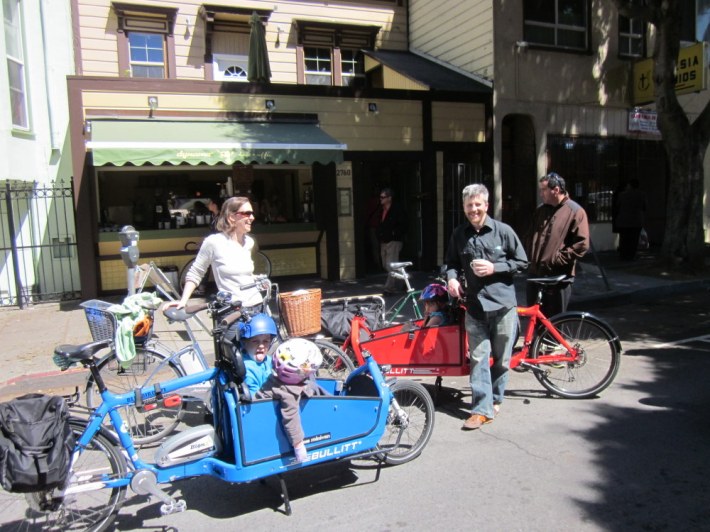
At Rosa Parks Elementary School in the Western Addition, the bike racks are filling up. Even with San Francisco's hills and often far-flung school assignments, Dorie Apollonio thinks she and her family have helped start a trend at the school ever since they started dropping the kids off by bicycle from their home in Parnassus Heights.
"There are so many biking families at Rosa Parks now that we are, I’ve recently learned, sort of our own gravitational force," Apollonio wrote on her blog, Hum of the City. "We attract a few more families away from their cars every year."

Pedaling two children a few miles across San Francisco need not be an exhausting effort, as more families are finding. Bikes with electric assist motors can replace the family minivan, as Apollonio and her husband did in 2012. Since her family went car-free, Apollonio brags that they are saving loads of money and never have to worry about traffic.
"San Francisco is the kind of city that is made for assisted bikes. There are, famously, a lot of hills," Apollonio wrote in a post from last September. She says she correctly predicted "that 2013 would be the year of the electric assist bicycle," saying she's noticed a boom in their use.
"I, and everyone else riding one, can testify that an assisted bike will make driving in the city seem ridiculous," she wrote.
Families relying upon cargo and electric bikes seem more numerous this Bike and Roll to School Week than in previous years, as San Francisco starts to resemble cities like Amsterdam, Copenhagen, or Tokyo, where cargo bikes hauling children are just a normal part of the streetscape.
To meet the rising demand, Kit Hodge is leaving her position this month as deputy director of the San Francisco Bicycle Coalition to start a company called Vie, which will lease out family-friendly bikes with features like cargo racks, electric assist motors, and passenger seats.
"It really makes parenting a whole lot easier," said Hodge, herself a mother who transports her kids by motorized and cargo bikes. She said that although such bikes are far cheaper than owning and maintaining a car, many San Franciscans are still hesitant to make a several-thousand dollar commitment up front, often to import a bike. She hopes to address that barrier by providing more flexible, "middle ground" ways to get bikes to families.
"The idea is to allow folks to try different options, without an obligation to buy," said Hodge. The bikes will be available for lease on a monthly or short-term basis.
Hodge said the SFBC has seen the growing demand for such a service, with many parents asking questions at the SFBC's family biking classes about the most practical types of bikes. "It became very clear that, for many people, the current interest was really touching bikes, seeing the options," she said.
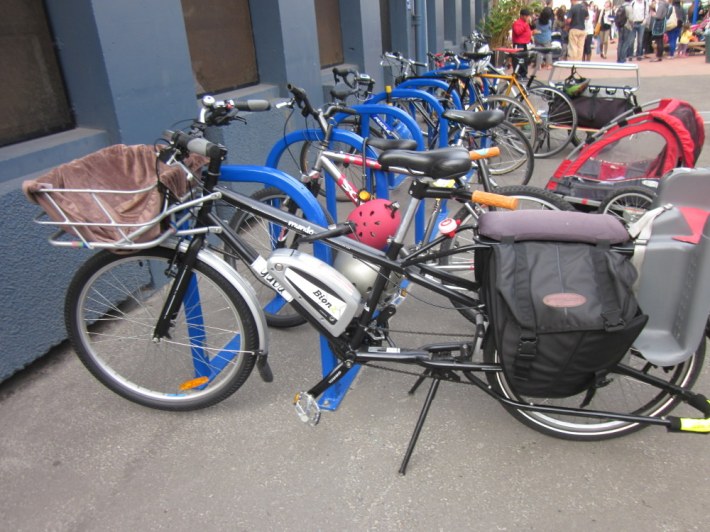
At events like Sunday Streets, the SFBC has showcased an XtraCycle, a bike design whose extended rear rack can carry passengers, fitted with an electric motor. Families eager for test rides ensure that "it pretty much never sits idle. There are constantly people trying it, because they're really interested in the experience. For better or worse, there are a lot of tantrums from kids who are really sad that they have to get off."
As Apollonio has documented with her blog, adapting to car-free family life can pose challenges at first, and the family still sometimes uses rental cars and car-share. She says the family brushes off the occasional finger-wagging from those who assume biking with kids is dangerous. A year ago, Apollonio and her two kids were injured by a driver in Golden Gate Park. But it hasn't kept the family away from bicycling: Apollonio wrote in a blog post that "what happened to me was terrifying and dramatic and depressing... but it was also anomalous." She pointed out that studies consistently show that benefits outweigh any risk involved with bicycling, which are similar to driving. The streets only get safer as the city adds traffic calming and better bike lanes, and as more people on bikes create safety in numbers.
On her commute, Hodge said she sees a lot of other families on bikes, particularly in areas with good bike infrastructure like the Panhandle. Each family serves as a sort of advertisement for a different way of getting around.
"People are constantly talking to us and showing how interested they are," said Hodge.
